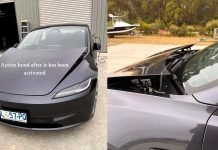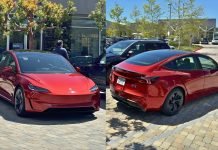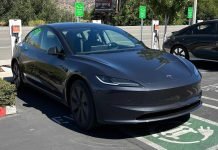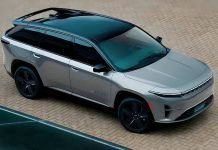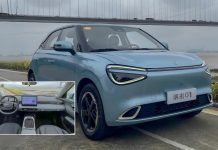The question of how fast charging impacts the longevity of electric vehicle (EV) batteries has been a hot topic in the automotive world for years. This concern is particularly relevant for Tesla owners, given the brand’s extensive Supercharger network and the increasing adoption of its vehicles for long-distance travel. The issue has been a subject of various debates and discussions, but conclusive evidence has been elusive.
Enter a groundbreaking study by Recurrent, which has provided some much-needed clarity on this matter. By analyzing data from over 12,500 Tesla vehicles in the United States, the study aimed to determine whether frequent fast charging has a detrimental effect on battery health. The findings are not only surprising but also highly significant, as they could influence charging habits and long-term vehicle usage for Tesla owners.
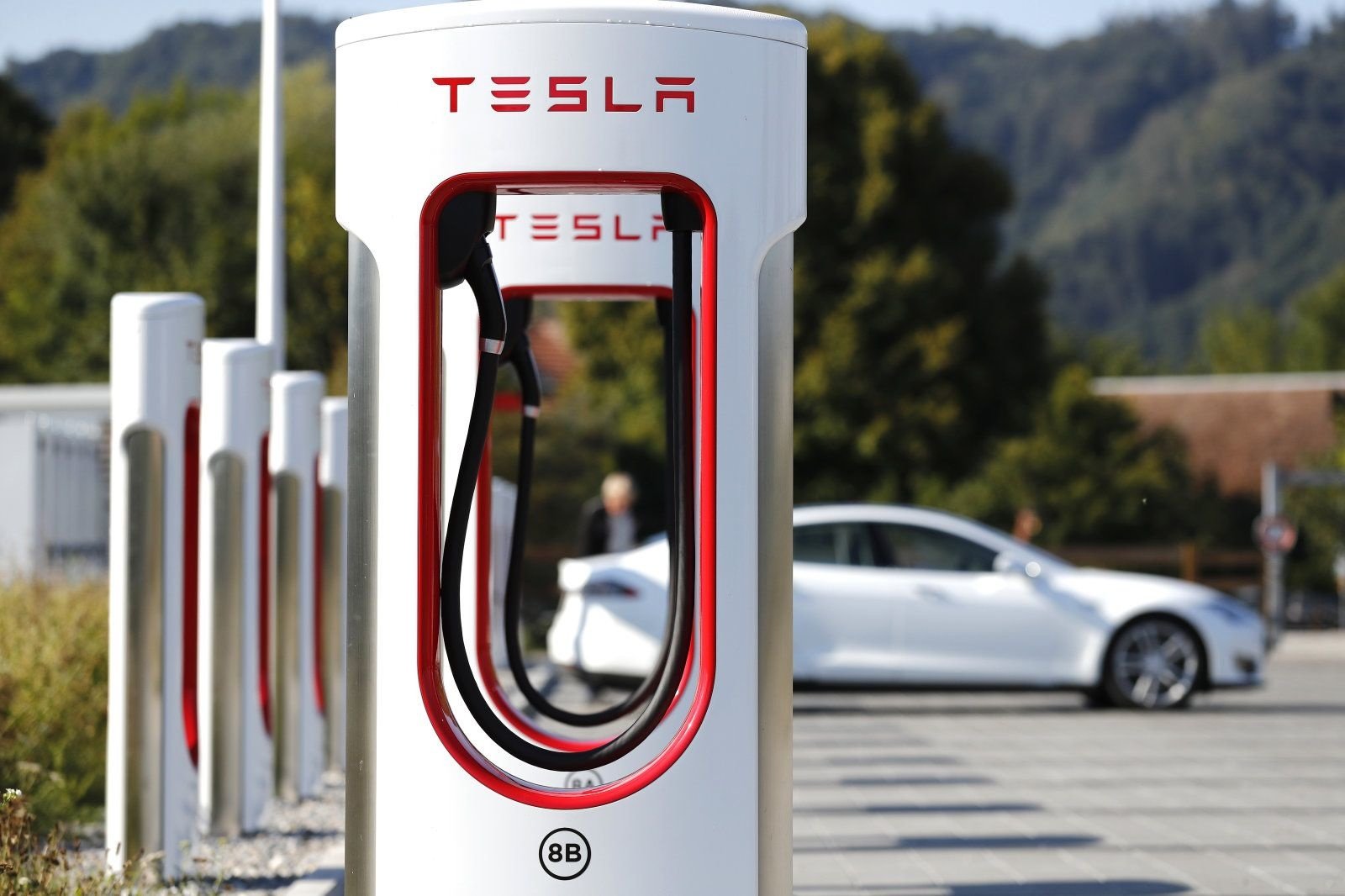
Tesla Supercharger Has Negligible Effect on Battery Life
The primary objective of the Recurrent study was to address a long-standing question in the electric vehicle community: Does frequent fast charging negatively impact the longevity of Tesla batteries? This question has been a subject of speculation and cautionary advice, but until now, there has been a lack of empirical data to provide a definitive answer.
Objective and Methodology
Recurrent employed a robust methodology that involved analyzing data from a large sample of Tesla vehicles over 12,500 in the United States. The study compared two distinct groups of Tesla owners: those who fast charge their vehicles at least 90% of the time and those who fast charge less than 10% of the time.
This approach allowed for a comprehensive examination of the potential effects of frequent fast charging on battery health, effectively isolating it as a variable and providing a more accurate assessment of its impact.
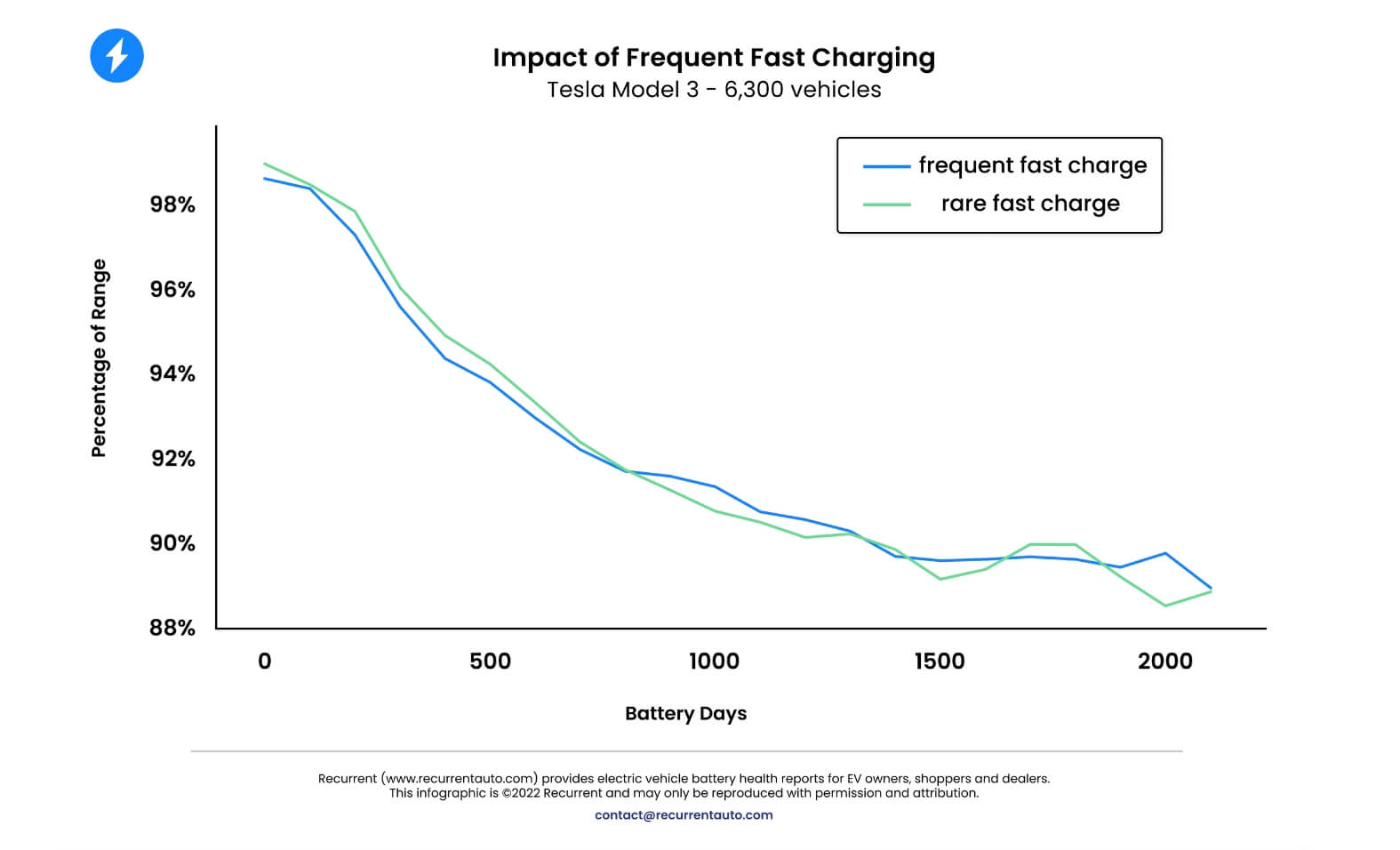
Key Findings
One of the most compelling outcomes of the Recurrent study was its revelation that there is no statistically significant difference in battery degradation between Tesla vehicles that are frequently fast-charged and those that are rarely fast-charged. This finding effectively dispels the common misconception that frequent fast charging can lead to quicker battery degradation, a belief that has often been cited as a drawback of relying on fast charging.
Furthermore, the study highlighted the effectiveness of Tesla’s battery management system (BMS) in protecting the battery during fast charging sessions. The BMS employs robust thermal, voltage, and safety mechanisms to ensure that the battery remains in optimal condition, even when subjected to the high energy input levels associated with fast charging. This underscores the advanced engineering and safety features that Tesla has incorporated into its vehicles, allowing owners to use fast charging options without worrying about long-term battery health.
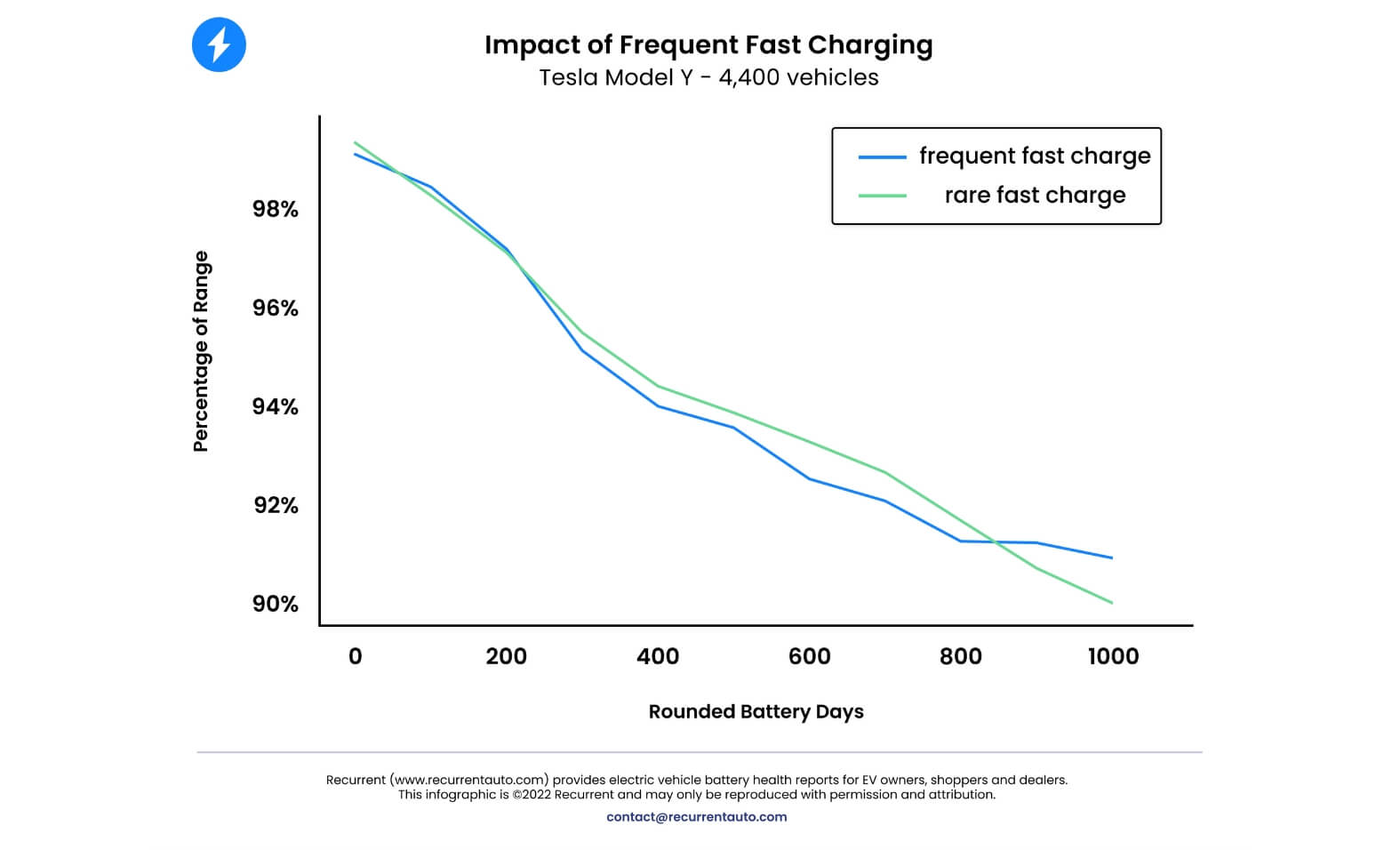
What This Means for Tesla Owners
The findings from the Recurrent study offer significant peace of mind for Tesla owners, particularly those who rely heavily on fast charging for their daily commutes or long-distance travels.
Peace of Mind
The absence of a notable difference in battery degradation between frequent and rare fast chargers means that Tesla owners can continue to utilize Superchargers without the looming concern of accelerated battery wear.
This is especially reassuring for those who may not have ready access to slower, Level 2 charging options and depend on fast charging as their primary means of recharging their vehicles.
Precautions During Extreme Conditions
While the study largely alleviates concerns about the impact of fast charging on battery health, it does highlight the need for caution under certain conditions. Specifically, extreme temperatures—both hot and cold—can affect battery performance. The study recommends preconditioning the battery in such conditions before fast charging.
Preconditioning involves using the car’s thermal management system to either pre-cool or pre-heat the battery so that it can accept a higher charge rate without overheating or underperforming. This precautionary step ensures that the battery remains in optimal condition, even when fast charging in less-than-ideal environmental conditions.
Conclusion and Recommendations
The Recurrent study has effectively debunked a long-standing myth in the electric vehicle community, proving that frequent fast charging does not have a detrimental impact on the longevity of Tesla batteries. This is a significant revelation that not only reassures current Tesla owners but also serves as a strong selling point for potential buyers who may have been hesitant due to concerns about battery degradation.
The study also highlights the robustness of Tesla’s battery management system, which plays a crucial role in maintaining battery health during fast charging sessions.
Based on the study’s findings, Tesla owners should consider taking certain precautions to optimize their charging experience further. Preconditioning the battery in extreme temperatures is advisable to ensure that the battery can handle fast charging without any negative impact.
Additionally, for the last 20% of the charging process, using Level 2 chargers may offer better efficiency. This approach not only maximizes the battery’s lifespan but also contributes to more sustainable and efficient use of electric vehicles.

